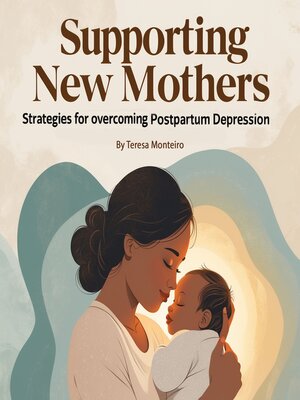Supporting New Mothers
audiobook (Unabridged) ∣ Strategies for Overcoming Postpartum Depression
By Teresa Monteiro

Sign up to save your library
With an OverDrive account, you can save your favorite libraries for at-a-glance information about availability. Find out more about OverDrive accounts.
Find this title in Libby, the library reading app by OverDrive.



Search for a digital library with this title
Title found at these libraries:
| Library Name | Distance |
|---|---|
| Loading... |
This audiobook is narrated by a digital voice.
The moment a child enters the world, society expects a mother to be overcome with joy, love, and an immediate maternal bond. Yet for millions of women worldwide, the reality is starkly different. Instead of overwhelming happiness, they find themselves consumed by sadness, anxiety, and a profound sense of disconnection from both their baby and themselves. This is the reality of postpartum depression, a condition that affects up to twenty percent of new mothers, making it one of the most common complications of childbirth.
Postpartum depression is far more than the "baby blues" that many women experience in the first few weeks after delivery. While the baby blues typically involve mood swings, crying spells, and mild anxiety that resolve within two weeks, postpartum depression is a serious mental health condition that can persist for months or even years if left untreated. The symptoms are severe and interfere significantly with a mother's ability to care for herself and her baby.
The onset of postpartum depression can occur anytime within the first year after childbirth, though it most commonly develops within the first three months. Some women may even experience symptoms during pregnancy, a condition known as antenatal depression. The timing can be particularly confusing for new mothers who may have felt fine immediately after birth, only to find themselves struggling weeks or months later when they expected to be feeling more settled and confident in their new role.







